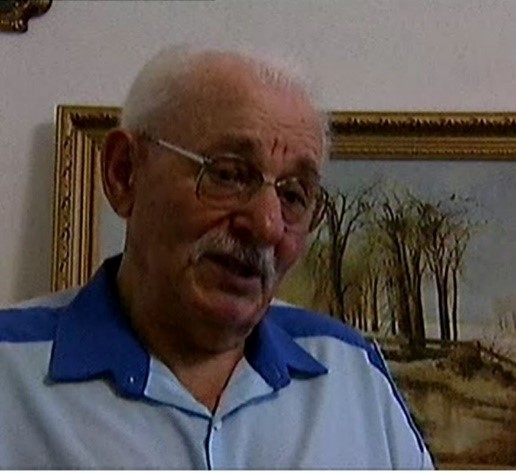Arkadii Shulman was born in 1921 in Grozovo, a small town in Belorussia. He was the youngest of seven children. His father Khayim was a cheesemaker, and was thus classified by the Soviet regime as a "NEPman", or "bourgeois element." In 1930, the authorities shut down Khayim's business, and he decided that the most sensible course of action would be to join a Jewish kolkhoz (collective farm) in the Crimea. In 1932, the entire family, except for the two eldest sons, settled in the Crimea, in kolkhoz Naylebn (Yiddish for "New Life"). Arkadii's eldest brother Iosif was arrested in 1925 for membership in an underground Zionist cell, and exiled to the Russian Far North. Another brother of his, Samuil, who remained in Belorussia as a veterinarian, was arrested and executed on trumped-up charges in 1937.
Upon finishing school in 1939, Arkadii entered the Kharkiv Medical Institute (university), where his sister Tsilya was already studying, but in October that year he was drafted into the Red Army. Shulman served in the 55th Anti-Aircraft Artillery Regiment, which was deployed in the newly annexed Western Ukraine (southeastern Poland); there, he was trained as a communications man, and received the rank of junior commander (which was equivalent to corporal). At the time of the outbreak of the Soviet-German War in June 1941, Arkadii's anti-aircraft battalion was stationed in Kamenets-Podolskii. It had to take part in the combat almost at once; however, it quickly became clear that the battalion had been issued shells that did not fit the cannons. Thus, the unit was forced to retreat instead of fighting. In August 1941, the remnants of the battalion found themselves in the enemy rear.
Realizing that any attempt to cross the frontline to the Soviet side would be futile, Shulman exchanged his uniform for civilian clothing and settled in the small village of Berezianka in central Ukraine. He was adopted by a childless Polish Catholic family, and worked as their farmhand. He registered himself with the local Ukrainian authorities as Arkhip Baulin, an ethnic Russian. He recalls that the local population was satisfied with the Nazi extermination of the Jews.1
In August 1943, Shulman was arrested in a police roundup of suspicious individuals. He was incarcerated in the Gestapo jail in Berdichev. A month later, the Germans initiated a deportation of the inmates westward. Shulman and his comrades managed to escape from the deportation train. Sensing that the frontline was drawing near, the escapees decided to form a partisan unit and move toward the Soviet lines. In December 1943, the "partisan unit" met the regular army.
In January 1944, Shulman enlisted in the Red Army for the second time. At the recruitment office, he identified himself as Arkadii Shulman, a Jew (although he continued to be known as "Arkhip Baulin" among his former "partisan" comrades). He was attached to the 21st Anti-Aircraft Division of the High Command Reserve. There, Arkadii was screened by SMERSh, the anti-spy agency of the Red Army. The SMERSh officers believed his story, and later (in 1945) they even invited him to serve in their agency as a translator from German. However, in 1944 Arkadii fought as a common soldier in western Ukraine, and then in the Carpathian Mountains and in southern Poland. During the Sandomierz offensive in July 1944, Arkadii met his sister Tsiliya, who served as a military physician at an aircraft regiment. Their second reunion took place in Liegnitz, Silesia, after the end of the war.
Arkadii Shulman was discharged from the army in 1946. He returned to his Crimean kolkhoz, which was no longer Jewish; most of its members were now Ukrainians, the younger Shulmans having left. In 1950, Arkadii graduated from an agricultural institute; he worked as an agronomist in the Crimea. In 1993, the Shulman family settled in Israel.
- 1. YVA O.93/34840







